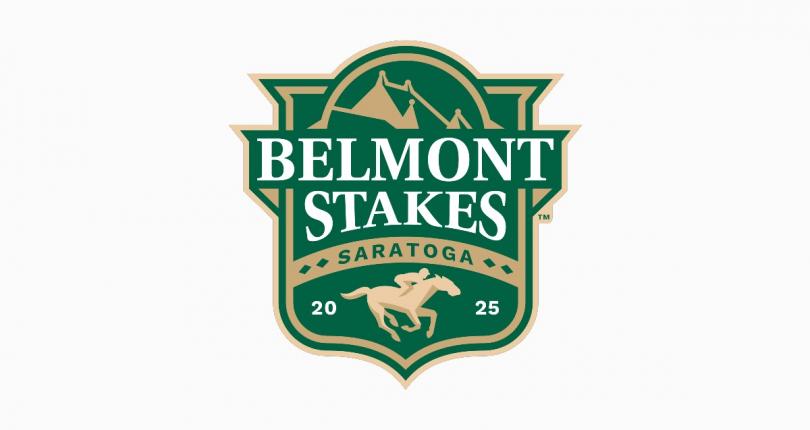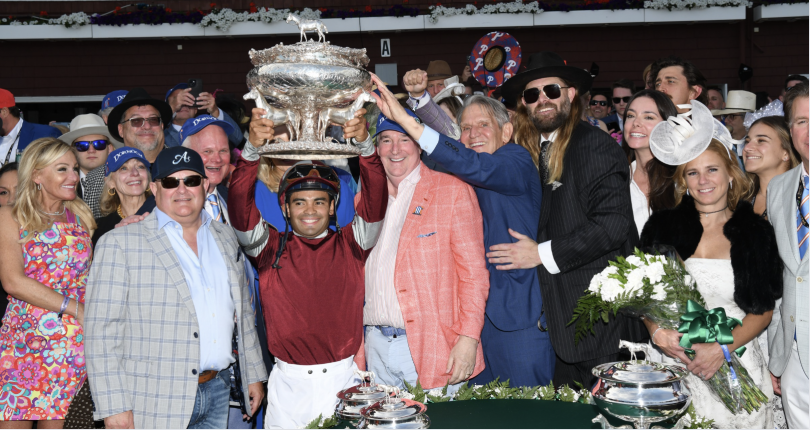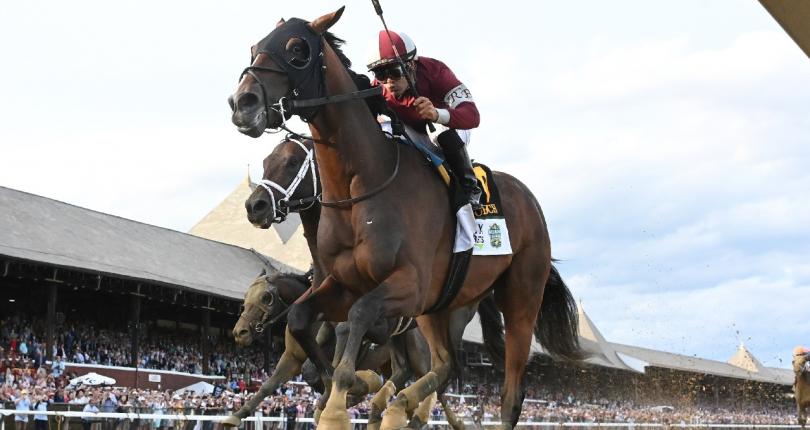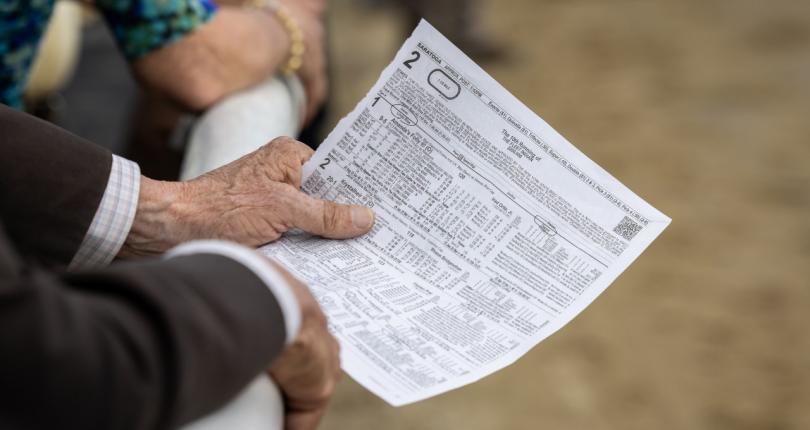
150 days to the 150th Belmont Stakes; a look back at milestone runnings of 'The Test of the Champion
by Bob Ehalt
Paid banners below are not related to Belmont Stakes Ticket Sales.
When the calendar turned to January 10, it marked a milestone during a landmark year in the long and proud history of the Grade 1, $1.5 million Belmont Stakes.
The 150th edition of the famed "Test of the Champion" is now 150 days away on June 9. Tickets for the three-day, 2018 Belmont Stakes Racing Festival will be available to the public starting on January 25. NYRA will again be offering an exclusive pre-sale ahead of the general sale, and fans longing for thoughts of warmer days can explore those opportunities at https://www.belmontstakes.com/tickets/2018-ticket-info.
In the meantime, to help melt away the deep winter chill, here's a look at back at a few of the other milestone editions of the Belmont Stakes that just might serve as a preview of the excitement to come in the 1 ½-mile finale of the Triple Crown.
1st running of the Belmont Stakes, June 19, 1867
The inaugural running of the Belmont Stakes took place at Jerome Park, a racetrack in the Bedford Park area of the Bronx that is now home to Lehman College and adjacent to the campus of Fordham University.
Jerome Park, which closed in 1894, served as the venue for the Belmont Stakes until 1889 and that initial edition pre-dated the Kentucky Derby by eight years and the Preakness by six years.
Named after August Belmont, a prominent owner and breeder, the initial Belmont was won by a 3-year-old filly, Ruthless, who prevailed by a head over De Courcey in a field of four and covered 1 5/8 miles in 3:05 to earn $1,850 for her owners.
Ruthless, now enshrined in the National Museum of Racing and Hall of Fame, won 7 of 11 starts, including a victory later that year in the Travers Stakes at Saratoga.
The daughter of the legendary Eclipse is one of only three fillies to win the Belmont Stakes. Tanya matched her feat in 1905 and then 102 years passed until another filly, Rags to Riches, triumphed in the 2007 Belmont.
50th running of the Belmont Stakes, June 15, 1918
After the race was not run in 1911 and 1912 due to the Hart-Agnew Law which prohibited gambling at New York racetracks, the 50th Belmont Stakes was contested at Belmont Park, which opened in 1905, and like the inaugural edition, attracted a field of four.
Run at 1 3/8 miles with a value to the winner of $8,700, it was won by the English-bred Johren, who was owned and bred by Harry Payne Whitney and prevailed by two lengths in a time of 2:20 2/5.
Johren did not race at 2 and skipped the Kentucky Derby before finishing fourth in the Preakness. The Belmont, when he beat Preakness winner War Cloud, was one of his nine wins in 22 starts, with other victories coming in the 1918 runnings of the Saratoga Cup, Suburban and Lawrence Realization.
Whitney, who inherited a fortune valued at $24 million when his father, William C. Whitney, died in 1904, had a passion for polo, yachting and horse racing. He owned Upset, who handed Man o' War his lone defeat, and his powerful stable registered four wins in the Belmont, two in the Kentucky Derby and six in the Preakness over the years.
100th running of the Belmont Stakes, June 1, 1968
The Belmont Stakes turned 100 with one of its most memorable editions.
The 1968 Belmont Stakes took place less than two weeks after "Beautiful" Belmont Park re-opened on May 20 with a new, remodeled grandstand and European-styled walking ring that took nearly four years to build at a cost of $30.7 million.
After Aqueduct Racetrack played host to the Belmont Stakes from 1964-67, the 100th renewal included a few oddities.
It was contested just two days after Memorial Day, held on a Thursday, as later in the year the holiday was permanently moved by Congress to Monday to create a three-day weekend.
The 1968 Belmont also came two weeks after Preakness. The following year, the Belmont Stakes was moved back a week to its current spot three weeks after the second leg of the Triple Crown.
The 100th Belmont Stakes and 1968 Triple Crown chase was spared an asterisk akin to the one attached to Roger Maris' home run record when Greentree Stable's Stage Door Johnny, in his stakes debut, defeated favored Forward Pass.
Owned by the famed Calumet Farm, Forward Pass arrived at Belmont Park bidding to become the first Triple Crown winner since Calumet's Citation in 1948. Yet the Preakness winner's claim to Triple Crown glory was marred by controversy surrounding the Kentucky Derby. Dancer's Image crossed the finish line first at Churchill Downs, but a few days later he was stripped of the victory after testing positive for the banned painkiller Butazolidin and Forward Pass, the runner-up, was declared the winner.
Forward Pass skipped along on a clear lead in a field of nine for the first 10 furlongs of the 1 ½-mile Belmont. But in the stretch of the $161,450 stakes, jockey Heliodoro Gustines guided Stage Door Johnny past the front-runner to notch a 1 ¼-length win in 2:27 1/5 for trainer John M. Gaver that saved the Triple Crown from being mired in a court battle over the Derby ruling that lasted until 1972.
Making the victory even more popular for the New Yorkers among a crowd of 54,654 was that Greentree Stable was run at the time by John Hay "Jock" Whitney and his sister Joan Whitney Payson, the beloved owner of the New York Mets and a niece of Harry Payne Whitney.
Stage Door Johnny's victory also created an arc between the 50th Belmont and the 100th Belmont through the Whitney family, and now, 50 years later, time will tell if the milestone 150th Belmont will have a similar link to the past. Can a filly win it? Will there be a Triple Crown bid?
In 150 days, we'll know.








 Gambling Problems? The New York Racing Association encourages responsible wagering. If gambling is a problem for you or someone you care about, help is available 24 hours a day. Scan here to talk with someone now about your gambling. Or call toll-free 1-877-8-HOPE-NY.
Gambling Problems? The New York Racing Association encourages responsible wagering. If gambling is a problem for you or someone you care about, help is available 24 hours a day. Scan here to talk with someone now about your gambling. Or call toll-free 1-877-8-HOPE-NY.